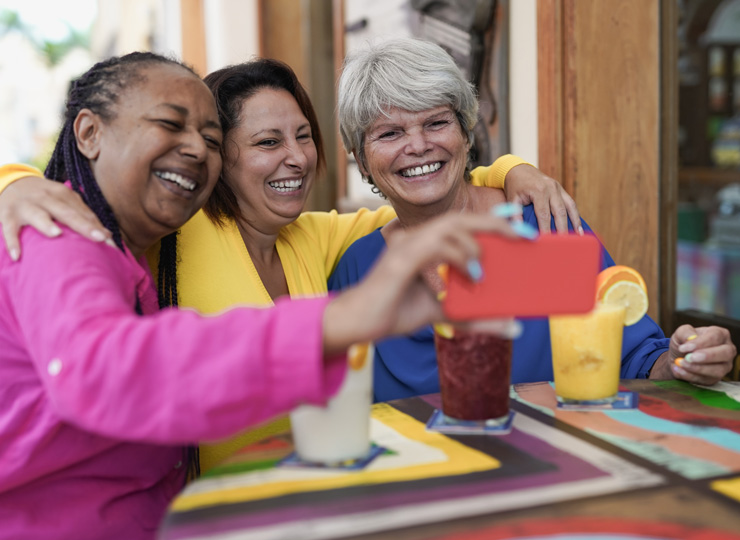
July 26, 2023
Having a network of friends and family is critical for staying mentally sharp in old age, a growing body of research shows. It may even reduce your risk of developing Alzheimer’s disease.
Now a new study suggests why. Older men and women who remained socially isolated showed significant reductions in the volume of the hippocampus, an area of the brain critical for memory and one of the first areas to be affected by Alzheimer’s disease. They also tended to score lower on tests of memory and thinking skills.
The results also suggest that maintaining a healthy social network, with frequent contact with supportive friends or family, can help preserve the aging brain. Targeting those at risk of social isolation with tailored strategies to increase social contact may help prevent the onset of dementia, the findings suggest.
“Simply put, assuming that everything else remains stable, the difference between having three or four close and supportive friends is comparable to a one-year difference in hippocampal aging,” said Laurenz Lammer, the study’s lead author and a medical student at University Hospital Leipzig in Germany.
“Current drugs to treat Alzheimer’s offer “at most a minor alleviation of symptoms,” he added. “Therefore, preventative measures aimed at stopping or delaying the onset of the disease are of utmost importance, and identifying risk factors for developing the disease may be our most promising target.”
For the study, published in the journal eLife, researchers looked at 1,335 older men and women who were part of an ongoing study in Germany. None had Alzheimer’s disease or other serious neurological or memory problems at the start of the study period. Participants underwent MRI scans at the start of the study to assess the health of their brains, as well as tests of memory and thinking skills.
Participants also completed a survey to assess the quantity and quality of their social lives. Researchers examined such factors as how many friends and family members were part of their social network, how often they had interactions with those in their social network, and whether they felt supported by friends and family members. For example, participants were asked such questions as: “How many friends or relatives do you see or hear from at least once a month?” or “How many friends or relatives do you feel at ease with that you can talk about private matters?”
The researchers followed the participants over the next six years. At the end of that time, they again underwent MRI scans and cognitive skills tests, and completed surveys to assess the quality of their social networks.
The research team found that those men and women who were socially isolated at the start of the study, as well as those whose social network had contracted substantially over the six-year follow-up period, had reductions in the size of the hippocampus and other brain regions critical for memory, learning and decision making. They also scored lower on tests of memory and thinking skills. Those who stayed more socially connected, including those who lived with someone, were married or were working, did not tend to show the same deficits.
Further research is needed to better understand how social contact may fortify the aging brain, and possibly help to protect it against Alzheimer’s. Many factors determine who will ultimately develop dementia, and lack of social support is only one of them. Maintaining a close network of family and friends who can be called on for emotional support may be especially important for anyone caring for a loved one with Alzheimer’s disease.
To help maintain social ties, or to build new ones, experts offer a number of suggestions, among them:
*Schedule regular phone calls or appointment with friends or family members. Reach out to a neighbor to ask how they are doing and if there’s anything you can assist with.
*Join a fitness or dance class at a local Y or gym. Most offer group fitness classes geared to seniors, which can help to forge friendships. Physical activity also helps to diminish stress and maintain brain health.
*Take a painting, writing, music or crafts class at a local community center. Many are tailored to caregivers who often have few chances to connect with others and reap the benefit of mutual support. Many classes can also now be done virtually on the computer, so you don’t have to travel far.
By ALZinfo.org, The Alzheimer’s Information Site. Reviewed by Eric Schmidt, Ph.D., Fisher Center for Alzheimer’s Research Foundation at The Rockefeller University.
Source: Laurenz Lammer, Frauke Beyer, Melanie Luppa, et al: “Impact of social isolation on grey matter structure and cognitive functions: A population-based longitudinal neuroimaging study.” eLife, June 20, 2023











